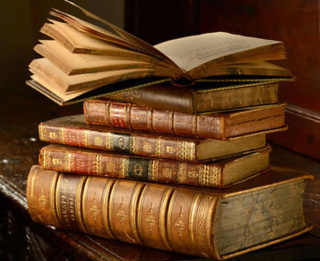It appeared that the old-fashioned English grammar has not only survived in America but now is going back in Britain, thanks to the preservation efforts of the Americans. British people surprised by the unusual situation of Americans that are more conservative than Britain in grammar aspect.
The subjunctive in question is the present one, which can be distinguished by the lack of the usual -s on first- and third-person singular verbs, as in take instead of takes. (The subjunctive of to be is be.) Everyone knows a host of fixed phrases using it, even if they don’t realise they are subjunctives. Far be it from me. Heaven forbid. So be it. These are not declarations but a sort of wish, equivalent to May it be far from me. May heaven forbid. May it be so. Britain and America even have distinctive national refrains with a subjunctive: God save the queen and God bless America. These look a bit like imperatives, but they are not; the faithful do not order the creator of the universe around.
The difference is that, in America, the subjunctive remained what linguists call “productive”, meaning that people use it in sentences never uttered before. Americans naturally write or say things like It is essential that every parent remain supportive or She suggested that he talk to someone else.
In the 20th century Britain, the use of subjunctive was different. In 1906, the Fowler brothers, co-authors of “The King’s English”, a venerable usage guide, thought the subjunctive would not last another generation, a disappearance they approved of. But it did not disappear. An article in the Observer in 1936 referred to “the most remarkable phenomenon in modern American syntax, viz., the pedantic revival of the subjunctive”.
By the middle of the century, in Btitain the subjunctive counted as “a hallmark of officialese” which had “a formal, even pedantic air”. Some British writers said that the return of the subjunctive was “now spreading so rapidly that, if left unchecked, it will do real damage to the structure of the language”.
By the end of the 20th century it was firmly associated with Americans who often indulge in subjunctive forms.
The subjunctive was common in the classic writings of the early-modern English period, particularly in the King James Bible—as in “hallowed be thy name” or “before the cock crow, thou shalt deny me thrice”. By the 1990s it was being treated by Amis and others as a vice a writer or speaker might “indulge” in. But such warnings were issued precisely because British scribblers were, in fact, indulging: use of the subjunctive increased markedly in the 20th century in Britain.
The case of an august part of old English grammar being regarded as a vulgar American import is an odd one. Writers of usage guides have tended to be a conservative lot. Typically, they look back to earlier stages of the language as a model, before recent corruptions.
Apparently nationalism is an even stronger force than conservatism. Americans in their early historical period tried to distance their English from Britain’s. Britain has more recently pushed away from American English, first as an empire that could afford to condescend to its former colonies, later as a medium-sized power that both admired and fretted about American might.
The worrying about the Americanisation of British original English has a point. The British English alternative to the subjunctive — using “should”, as in It is essential that every parent should remain supportive — has declined in Britain as the subjunctive has returned.
But in real this American “innovation” was born in England, and was used by many of its greatest authors for centuries. If it had survived in Britain, while Americans had invented the “should” replacement, it is interesting how the American innovation can be used.
The situation with language went the surprising way, mixing the canons. So, this may convince those who divide English language into different directions be more careful in statements.
© Times of U

